
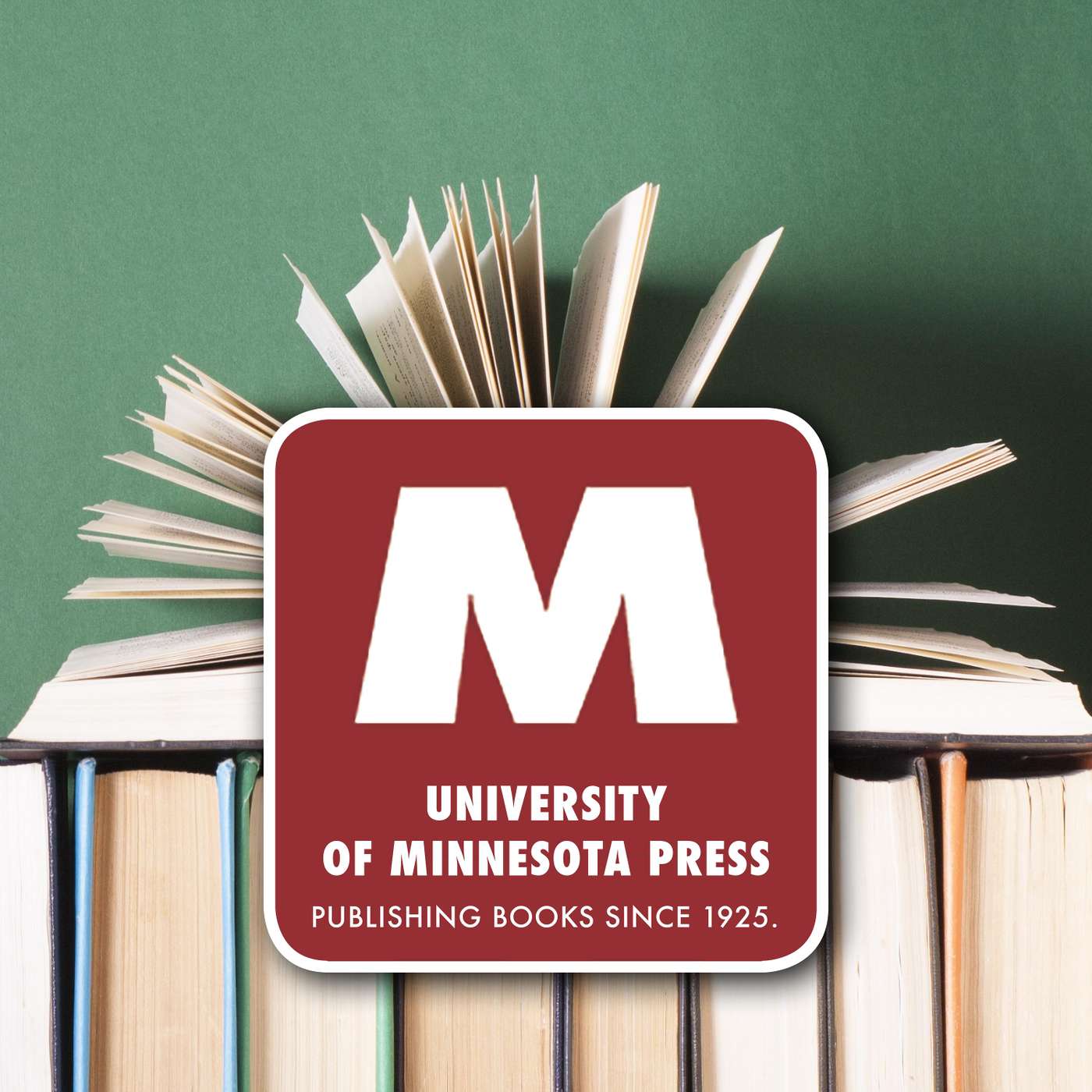
University of Minnesota Press
University of Minnesota Press
Authors join peers, scholars, and friends in conversation. Topics include environment, humanities, race, social justice, cultural studies, art, literature and literary criticism, media studies, sociology, anthropology, grief and loss, mental health, and more.
Episodes
Mentioned books

Jan 28, 2026 • 59min
The perilous edge between patriotism and fascism
The work of Maria Janion, one of Eastern Europe’s most profound intellectuals, who witnessed the rise of authoritarian nationalism in Poland, German occupation during World War II, Soviet control, and Poland’s uneasy integration into the West, explores this fine line. Janion’s writings have been gathered by Marta Figlerowicz into the recently published volume The Bad Child: A Maria Janion Reader, and Figlerowicz is joined here in conversation with Noah Feldman to talk about Janion’s writing, which offers sharp insights into how societies develop and assert their identities and histories—often at the cost of the people. There are clear parallels here to current conditions and events. Please note that this episode was recorded in October 2025.Maria Janion (1926–2020) was the greatest Polish leftist intellectual of her generation. The author of twenty-three books and hundreds of articles and essays, she mentored and inspired several generations of Eastern European scholars and political activists. During her life, Janion held appointments at several Polish academic institutions, including the University of Gdańsk and the Institute of Literary Studies in Warsaw.Marta Figlerowicz is professor of comparative literature at Yale University. She is a Guggenheim Fellow and author of Flat Protagonists and Spaces of Feeling as well as more than a hundred articles, reviews, and essays. Her translations from Polish have appeared in PMLA and The Paris Review.Noah Feldman is the Arthur Kingsley Porter University Professor at Harvard University. Feldman is author of ten books, including To Be a Jew Today, and host of the podcast Deep Background with Noah Feldman.Episode references:Adam MickiewiczOlga TokarczukEdward SaidIsaiah BerlinPraise for the book:“Maria Janion’s writing is foundational to so many currents of contemporary Central European thought—around nations and nationalism, gender and genre, everyday politics and the political writ large—that her invisibility in English has long struck those of us privileged to know her work as a tragedy, if not a crime. This book belongs on the shelf of every humanist.”—Benjamin Paloff, author of Worlds Apart“The remarkable creativity, energy, and erudition of Maria Janion shine forth in these essays.”—Sianne Ngai, University of ChicagoThe Bad Child: A Maria Janion Reader, edited by Marta Figlerowicz, available from University of Minnesota Press. Thank you for listening.

Jan 13, 2026 • 44min
Anti-mafia organizing and solidarity movements in Italy
For more than 150 years, Italy has been home to a resilient and evolving resistance against the pervasive influence of mafias. While these criminal organizations are renowned for their vast international business enterprises, the collective actions taken to oppose them are less known. Drawing on ethnographic fieldwork among anti-mafia alliances in Campania, Sicily, and other parts of Italy, Christina Jerne explores anti-mafia activism, revealing how ordinary people resist, counter, and prevent criminal economies from proliferating. Jerne is joined in conversation with Deborah Puccio-Den and Trine Mygind Korsby.Christina Jerne is associate professor in the Department of Scandinavian Studies and Experience Economy at Aarhus University, Denmark. Jerne is author of Opposition by Imitation: The Economics of Italian Anti-Mafia Activism and coeditor and translator of Against the Mafia: The Classic Italian Writings.Deborah Puccio-Den is a political anthropologist and research professor at the National Center for Scientific Research and the Ecole de Hautes Etudes en Sciences Sociales, Paris, France. She is author of Mafiacraft: An Ethnography of Deadly Silence.Trine Mygind Korsby is assistant professor in the Department of Anthropology at the University of Copenhagen and currently Marie Curie fellow at graduate center City of New York.REFERENCES:Mafiacraft: An Ethnography of Deadly Silence / Deborah Puccio-DenUmberto SantinoGiovanni FalconeAudre LordeJ. K. Gibson-GrahamBruno LatourJean Luc NancyGabriel TardeGilles DeleuzeFelix GuattariAddiopizzo Praise for the book:"Placing human experience at the center of collective action, Opposition by Imitation presents radically new directions for thinking about social movements. Christina Jerne captures both the fragility and strength of the struggle against mafia economies, powerfully demonstrating how anti-mafia activism opens up space for non-mafia relationships and economies to flourish."—Kevin McDonald, Middlesex UniversityOpposition by Imitation: The Economics of Italian Anti-Mafia Activism by Christina Jerne is available from University of Minnesota Press. Thank you for listening.
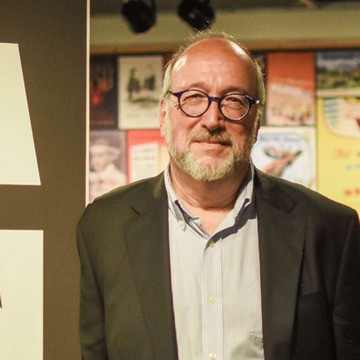
Dec 17, 2025 • 54min
Retirement special: Publishing leaders look back at decades of transformation and tenacity in the industry.
Douglas Armato, the fifth director in the University of Minnesota Press's 100-year history, will soon retire after 27 years of leadership at the Press—following an almost-50-year career in book publishing. On the occasion of this milestone event, he unites several titans of university publishing in a tremendous conversation about change and comradeship, past progress and future speculation, and persistent through it all, an abiding passion for what is at the core of this work: books. Gathered with Armato are Lisa Bayer, director of University of Georgia Press; Greg Britton, editorial director at Johns Hopkins University Press; Jennifer Crewe, associate provost and director of Columbia University Press; and Dean Smith, director of Duke University Press; in a conversation moderated by Bill Germano, professor of English at Cooper Union.More about Armato's acquisitions, collaborations, and retirement news: z.umn.edu/DA27.More about the Press's 100-year history and influence: z.umn.edu/wordfactory100.This is a University of Minnesota Press production. Thank you for listening.Episode chapters:02:30: What has scholarly publishing gained, and what has it lost, since we started in the business?05:08: Side hustles to sustain the bottom line.10:02: Are university presses and university libraries still close allies?17:52: How is the outside world meant to understand what a university press does?22:45: It's a job for hopeless romantics willing to fall in love with ideas (and not necessarily ones you even like).28:40: Whither AI? How is the AI tsunami different from or similar to past massive paradigm changes for publishing, such as the Internet and e-books?35:22: In a world of e-books, does a book need to go out of print? Should books go out of print?41:00: What is the ideal role for scholarly publishers with regard to tenure decisions?48:24: Memories and anecdotes about working with Doug Armato.
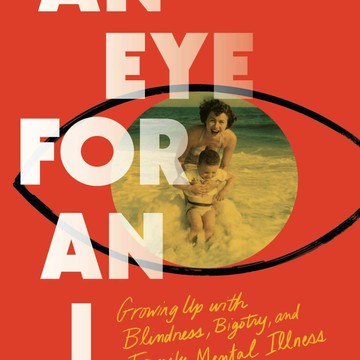
Dec 2, 2025 • 56min
Blindness and blind spots.
“Jovencito, it’s going to be lonely being different and yet strong in this world,” James Francisco Bonilla’s grandmother told him when he was ten. Born with congenital cataracts, James had limited vision in his right eye and none in his left. At age nine, after a classmate hurled a horseshoe at his face in a racially motivated assault, James’s right eye was injured and he became legally blind. At home, too, he feared physical violence, experiencing the unpredictable outbursts of a single mother suffering from severe mental illness. Throughout his youth as a Puerto Rican New Yorker, James was continually failed by educational systems that exposed him to one abuse after another. Searching for relief and inspiration, he discovered an unexpected solace in the natural world, spiritual encounters with Mother Earth that led him toward both personal healing and advocacy.At nineteen, a breakthrough in medical technology restored the sight in his right eye, and James recognized his unique perspective on the struggles of the disabled and marginalized in American life—and his intense will to make a difference. Here, James is joined in conversation with Beverly Daniel Tatum and Charmaine L. Wijeyesinghe.James Francisco Bonilla (he/him) is a New York–born Puerto Rican writer and retired professor of Hamline University in St. Paul. He has written and presented nationally and internationally on diversity, cultural competence, and leadership, especially on how to diversify environmental organizations. Beverly Daniel Tatum (she/her) is an award-winning educational leader, best-selling author, expert on the psychology of racism, and longtime social justice educator.Charmaine Wijeyesinghe (she/her) is a consultant and author with 40 years of experience working with colleges, universities, and public and private organizations on diverse social justice areas and organizational change.REFERENCES:What My Bones Know: A Memoir of Healing from Complex Trauma / Stephanie FooCrip Camp: A Disability Revolution (film)The Country of the Blind: A Memoir at the End of Sight / Andrew LelandPeril and Promise: College Leadership in Turbulent Times / Beverly Daniel TatumPromoting Diversity and Social Justice: Educating People from Privileged Groups / Diane J. GoodmanAlways We Begin Again: The Benedictine Way of Living / John McQuistonPraise for the book:“With its intersectional analysis of racism, mental illness, and disability, this memoir brings a fresh and inspiring voice to the world of social justice literature.” —Beverly Daniel Tatum“This memoir is the essence of what I still seek to share with youth in all communities.”—J. Herman Blake, professor emeritus, Iowa State University“James Francisco Bonilla shows that hope and healing can be found through advocacy and community.”—Sue Abderholden, former executive director, NAMI Minnesota“This inspiring memoir encourages a new generation to confront biases and champion social justice.”—Madeline L. Peters, disability consultantAn Eye for an I: Growing Up with Blindness, Bigotry, and Family Mental Illness by James Francisco Bonilla is available from University of Minnesota Press. Thank you for listening.

Nov 18, 2025 • 46min
Medical technology and bodily authority
As medical advancements continue to shape the detection, diagnosis, and treatment of disability and illness, technology is often presented as a path to autonomy. Rebecca Monteleone shows how such technologies contribute to a cruel double bind, forcing disabled people to be accountable for adapting to a world built by and for nondisabled people while dismissing their lived experiences in favor of medical expertise. In the new book The Double Bind of Disability, Monteleone explores anecdotes about prenatal genetic screening, deep brain stimulation, and do-it-yourself artificial pancreas systems, exposing new relationships among disability, authority, knowledge, and responsibility. Monteleone is joined here in conversation with Ashley Shew. Rebecca Monteleone is associate professor of disability and technology at the University of Toledo and author of The Double Bind of Disability: How Medical Technology Shapes Bodily Authority. Ashley Shew is a professor of science, technology, and society at Virginia Tech and author of Against Technoableism: Rethinking Who Needs Improvement.EPISODE REFERENCES:-Ally Day-“Transmobility: Possibilities in Cyborg (Cripborg) Bodies,” Mallory Kay Nelson, Ashley Shew, and Bethany Stevens / Catalyst: Feminism, Theory, Technoscience -Jackie Leach Scully-Dana Lewis-Biomedicalization: Technoscience, Health, and Illness in the U.S. / Adele E. Clarke, Laura Mamo, Jennifer Ruth Fosket, Jennifer R. Fishman, Janet K. Shim, editorsPraise for the book:"A generous, timely, and essential contribution to understanding the current politics that shape medical technology and disability in the context of neoliberal ableism. A book that I will be thinking-making-feeling with for many years to come!"—Laura Forlano, Northeastern University The Double Bind of Disability: How Medical Technology Shapes Bodily Authority by Rebecca Monteleone is available from University of Minnesota Press. Thank you for listening.

Nov 11, 2025 • 1h 14min
The digitized afterlives of cultural objects.
What is the opposite of “big” data? In a society where households commonly store personal archives of photos, financial records, and other documents, the “little” database—the personal data collection that is stored and backed up and not accessed frequently—deserves a category of its own. In The Little Database: A Poetics of Media Formats, Daniel Scott Snelson examines globally accessible little databases, such as Textz, Eclipse, and UbuWeb, explores how digital archives dramatically transform the artifacts they host, and asks how they might help us better understand our own private collections in turn. Snelson is joined in conversation with Vicki Bennett, Craig Dworkin, and Luca Messarra. Daniel Scott Snelson is a writer, editor, archivist, and assistant professor in the departments of English and Design Media Arts at UCLA, where he also serves as faculty with the Digital Humanities Program, the UCLA Game Lab, and the Laboratory for Environmental Narrative Strategies. He is author of multiple volumes of experimental poetry and poetics, including Elden Poem, Apocalypse Reliquary, and EXE TXT.Vicki Bennett is a multidisciplinary British artist working under the name People Like Us. Craig Dworkin is professor of English at the University of Utah.Luca Messarra is a PhD candidate in English at Stanford University, and founder of Undocumented Press.EPISODE REFERENCES:Alan Liu, Local Transcendence: Essays on Postmodern Historicism and the DatabaseJerome McGann and Lisa Samuels, “Deformance and Interpretation" (chrome-extension://efaidnbmnnnibpcajpcglclefindmkaj/https://raley.english.ucsb.edu/wp-content/Engl800/Deformance.pdf)We Edit Life, film (People Like Us/Vicki Bennett; partnership with Lovebytes)Vanishing Culture: A Report on Our Fragile Cultural Record (Internet Archive, 2024, eds. Luca Messarra, Chris Freeland, Juliya Ziskina)Eclipse, an image-based archive of small press poetry books and magazinesPennSound, a site distributing audio recordings of poetry readingsUbuWeb, a collection of experimental film and video artAllen Institute for AIC4/Colossal Clean Crawled CorpusChristopher Kelty, "The Internet We Could Have Had"L=A=N=G=U=A=G=E magazine (ed. Charles Bernstein and Bruce Andrews)L≠A≠N≠G≠U≠A≠G≠E magazine (ed. Danny Snelson)Christian Marclay, The ClockJohanna DruckerMemory of the World archiveFuture Knowledge podcastRory McCartney and Charlie Morgan, Heated Words: Searching for a Mysterious Typeface Marcus Boon, In Praise of Copying Praise for the book:“The Little Database is an incredibly powerful intervention into twenty-first-century experimental poetics and avant-garde media practices.”—Stephanie Boluk“The Little Database opens new ground for close reading in an environment that heavily promotes big data techniques and the neoliberal ideologies that accompany it in the new economy of attention.”—Leonardo Reviews“Snelson targets the fundamental assumption underlying much of contemporary DH work: that meaningful interpretation necessarily depends on the deployment of massive amounts of data.”—Oxford's Year's Work in Critical and Cultural Theory“This book, while short in length, is certain to be long in influence, as it lays groundwork for future scholars, artists, readers, website makers, and archivists. The twists and turns, both in methodology and in specific analyses, are far more exciting than any summary, or even multiple readings of them, could serve.”—Digital Humanities QuarterlyThe Little Database: A Poetics of Media Formats by Daniel Scott Snelson is available from University of Minnesota Press. An open-access edition is available at Manifold.

Nov 5, 2025 • 1h 14min
Indigenous filmmaking and futures
What lives in the spaces between dreams and apocalypse? Two authors discuss their books on Indigenous media: Karrmen Crey, whose Producing Sovereignty: The Rise of Indigenous Media in Canada considers the political and cultural conditions that enabled the proliferation of Indigenous media across Canada in the early 1990s. The product of years of embedded fieldwork within Indigenous film crews in Northwestern Australia, William Lempert’s Dreaming Down the Track delves deeply into Aboriginal cinema as a transformative community process. Crey and Lempert are joined in conversation here about the process of preserving community stories and enacting sovereign futures.Karrmen Crey is associate professor of Aboriginal communication and media studies in the School of Communication at Simon Fraser University. Crey is author of Producing Sovereignty: The Rise of Indigenous Media in Canada and coeditor (with Joanna Hearne) of By Their Work: Indigenous Women’s Digital Media in North America. William Lempert is Osterweis Family Associate Professor of Anthropology at Bowdoin College and author of Dreaming Down the Track: Awakenings in Aboriginal Cinema.REFERENCES/MEDIA:Donna’s Story (film)Indians + Aliens (reality television series)The Visit (animated documentary short)Tjawa Tjawa (film)Rutherford Falls (sitcom)REFERENCES/PEOPLE:Mark MooraFaye GinsburgJesse WenteDoug CuthandDonna GambleLisa JacksonBilly-Ray BelcourtJeff BarnabyLeanne Betasamosake SimpsonCynthia Lickers-SageTaiko WaititiFoucaultCoulthardAudra SimpsonREFERENCES/OTHERMark Rifkin / Beyond Settler TimeImagiNATIVE AustraliaKarrmen Crey’s Producing Sovereignty: The Rise of Indigenous Media in Canada and By Their Work: Indigenous Women’s Digital Media in North America (a collection co-edited with Joanna Hearne) are available from University of Minnesota Press. Dreaming Down the Track: Awakenings in Aboriginal Cinema by William Lempert is available from University of Minnesota Press, and has an open-access edition through Manifold.
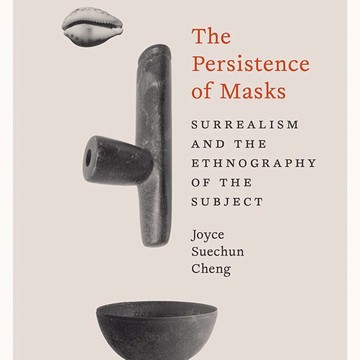
Oct 28, 2025 • 1h 3min
Surrealism and selfhood
In interwar Paris, the encounter between surrealism and the nascent discipline of ethnology led to an intellectual project now known as “ethnographic surrealism.” Joyce Suechun Cheng considers the ethnographic dimension of the surrealist movement in its formative years in her new book The Persistence of Masks: Surrealism and the Ethnography of the Subject, the inaugural volume in the University of Minnesota Press’s Surrealisms series. By broadening the scope of ethnographic surrealism, Cheng offers new insights that challenge longstanding beliefs about this multifaceted movement in poetry, the arts, and culture. Here, Cheng is joined in conversation with Surrealisms series editor Jonathan Eburne.Joyce Cheng is associate professor of art history at the University of Oregon and author of The Persistence of Masks: Surrealism and the Ethnography of the Subject.Jonathan Eburne is J. H. Hexter Professor in the Humanities at Washington University in St. Louis. He is author of Outsider Theory: Intellectual Histories of Unorthodox Ideas and Exploded Views: Speculative Form and the Labor of Inquiry. REFERENCES:Michael Stone-RichardsJames Clifford / The Predicament of CultureNatalya LustyEffie RentzouJames Leo Cahill / Zoological SurrealismGeorges Bataille / DocumentsVincent Debaene / Far AfieldSevered hand collagesMarcel MaussHannah ArendtJohannes Fabian / Time and the OtherMalkam AyyahouThe Persistence of Masks: Surrealism and the Ethnography of the Subject by Joyce Suechun Cheng is available from University of Minnesota Press and is the first book in its Surrealisms series. The University of Minnesota Press is also publisher of the International Journal of Surrealism.
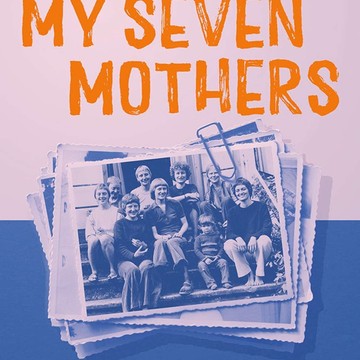
Oct 21, 2025 • 1h 1min
“Not everybody has seven mothers.”
In Copenhagen in 1972, during the exhilarating early days of women’s liberation in Scandinavia and dramatic social change around the world, seven women had a child together. Recounting her mothers’ history—from the passions and beliefs they shared to the political divisions over sexual identity that ultimately split them apart—Pernille Ipsen’s chronicle of gender, sexuality, and feminism as it was constructed, contested, and lived reminds us that new worlds are always possible. Here, Ipsen is joined in conversation with Adriane Lentz-Smith.Pernille Ipsen is author of My Seven Mothers: Making a Family in the Danish Women's Movement and professor of gender and women’s studies and history at the University of Wisconsin-Madison. Ipsen is a historian of gender, women, feminism, race and colonialism in Scandinavia and the larger Atlantic world.Adriane Lentz-Smith is associate professor of history, African American studies, and gender, sexuality, and feminist studies at Duke University. Lentz-Smith is author of Freedom Struggles: African Americans and World War I.Praise for the book:"This book is a treasure, especially for a second-wave American feminist who was thrilled to learn of the boldness and courage of our Danish sisters at the very start of the 1970s women’s movement. I can’t recommend it highly enough."—Vivian Gornick, author of The Odd Woman and the City"My Seven Mothers certainly is not all happiness and light, but that makes it even more moving, and as an American feminist I felt a sense of recognition infused with my own memories."—Linda Gordon, author of Seven Social Movements That Changed America"Compulsively readable and historically insightful, My Seven Mothers reveals the spirit, courage, and tenacity required of the women who paved the way for second-wave feminist organizing in Denmark."—Birgitte Søland, author of Becoming Modern: Young Women and the Reconstruction of Womanhood in the 1920sMy Seven Mothers: Making a Family in the Danish Women’s Movement by Pernille Ipsen is available from University of Minnesota Press. Thank you for listening.

Sep 30, 2025 • 1h 1min
Nonbinary Jane Austen
Chris Washington reads Jane Austen differently from how she is classically understood; rather than the doyen of the cisheteronormative marriage plot, Washington argues that Austen leverages the generic restraints of the novel and envisions a nonbinary future that traverses the two-sex model of gender that supposedly solidifies in the eighteenth century. Here, Washington discusses a politics built on plurality and possibility with Marquis Bey, Christopher Breu, and Alison Sperling.Chris Washington is associate professor of English at Francis Marion University. He is author of Nonbinary Jane Austen and editor of the Norton Critical Edition of Mary Shelley’s The Last Man.Marquis Bey is professor of black studies and gender and sexuality and critical theory at Northwestern University. Bey is author of several books including Cistem Failure, Black Trans Feminism, and The Problem of the Negro as a Problem for Gender.Christopher Breu is author of several books including In Defense of Sex, Insistence of the Material, Hard-Boiled Masculinities, and coeditor of Noir Affect. Breu is professor of English at Illinois State University. Alison Sperling is assistant professor of literature, media, and culture at Florida State University, and a visiting fellow at the Institute for Cultural Inquiry Berlin.REFERENCES:Derrida’s Of GrammatologyFoucaultTrans Femme Futures / Nat Raha and Mijke van der DriftThe Anthropocene Unconscious / Mark Bould; Alison Sperling review in Los Angeles Review of BooksThe Matrix filmBlack on Both Sides / C. Riley SnortonFred MotenJudith ButlerWe Are All Nonbinary (essay) / Kadji AminEdward SaidHistories of the Transgender Child / Jules Gill-PetersonS. Pearl Brilmyer / “The Ontology of the Couple” issue of GLQA Mercy / Toni MorrisonSojourner TruthNonbinary Jane Austen is available in the Forerunners series from University of Minnesota Press. An open-access edition is available at manifold.umn.edu. Thank you for listening.


